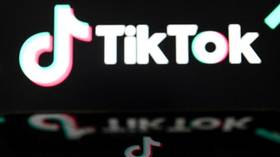TikTok releases new feature to challenge Twitter


Video-sharing platform TikTok will now allow users to post 1,000-character text updates, the Chinese-owned company announced on Monday. TikTok is the latest platform, after Mark Zuckerberg’s Meta, to ape Twitter’s microblogging features.
TikTok users will be able to add sound and location tags to their text posts, and other users will be able to comment and share these posts just as they would with photo or video updates.
TikTok’s announcement came less than a month after Meta debuted Threads, a text-based companion to Instagram. Released as Twitter owner Elon Musk announced that his platform would impose limits on the daily number of posts viewable to non-paying users, Threads shot to instant popularity, gaining more than 100 million users in its first five days online. However, the number of daily users has reportedly halved since the platform launched.
Aside from these big-name platforms, smaller apps like Bluesky, Mastodon, and former US President Donald Trump’s Truth Social have all unsuccessfully tried to lure users away from Twitter in recent years.
Social media platforms often copy each other’s features. Instagram introduced Stories in 2017 to compete with Snapchat, a decision that almost every other platform – including Twitter with its short-lived Fleets feature – would copy shortly afterwards. Instagram also introduced Reels in 2020 to rival TikTok, while YouTube unveiled its similar Shorts feature the following year.